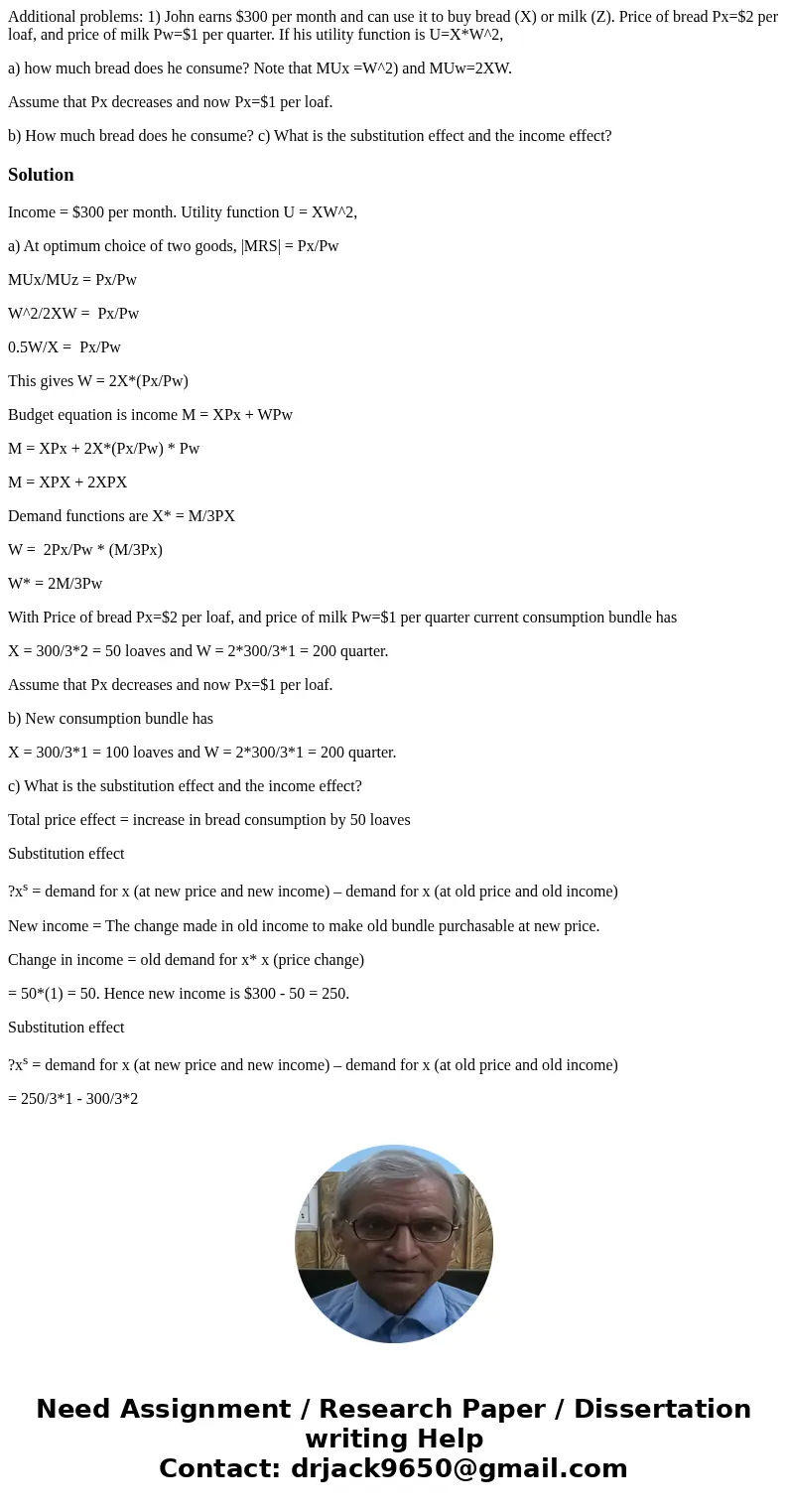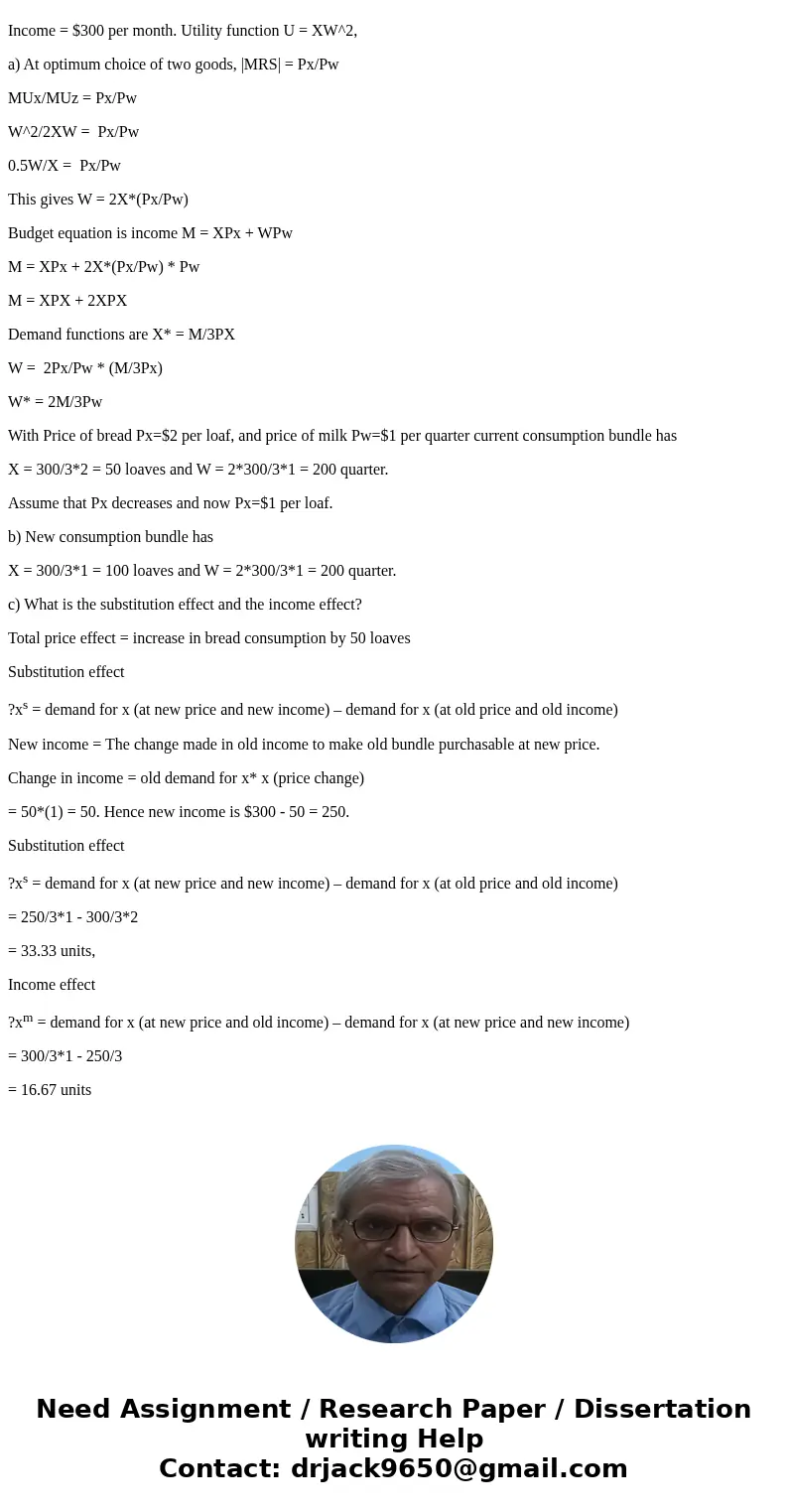Additional problems 1 John earns 300 per month and can use i
Additional problems: 1) John earns $300 per month and can use it to buy bread (X) or milk (Z). Price of bread Px=$2 per loaf, and price of milk Pw=$1 per quarter. If his utility function is U=X*W^2,
a) how much bread does he consume? Note that MUx =W^2) and MUw=2XW.
Assume that Px decreases and now Px=$1 per loaf.
b) How much bread does he consume? c) What is the substitution effect and the income effect?
Solution
Income = $300 per month. Utility function U = XW^2,
a) At optimum choice of two goods, |MRS| = Px/Pw
MUx/MUz = Px/Pw
W^2/2XW = Px/Pw
0.5W/X = Px/Pw
This gives W = 2X*(Px/Pw)
Budget equation is income M = XPx + WPw
M = XPx + 2X*(Px/Pw) * Pw
M = XPX + 2XPX
Demand functions are X* = M/3PX
W = 2Px/Pw * (M/3Px)
W* = 2M/3Pw
With Price of bread Px=$2 per loaf, and price of milk Pw=$1 per quarter current consumption bundle has
X = 300/3*2 = 50 loaves and W = 2*300/3*1 = 200 quarter.
Assume that Px decreases and now Px=$1 per loaf.
b) New consumption bundle has
X = 300/3*1 = 100 loaves and W = 2*300/3*1 = 200 quarter.
c) What is the substitution effect and the income effect?
Total price effect = increase in bread consumption by 50 loaves
Substitution effect
?xs = demand for x (at new price and new income) – demand for x (at old price and old income)
New income = The change made in old income to make old bundle purchasable at new price.
Change in income = old demand for x* x (price change)
= 50*(1) = 50. Hence new income is $300 - 50 = 250.
Substitution effect
?xs = demand for x (at new price and new income) – demand for x (at old price and old income)
= 250/3*1 - 300/3*2
= 33.33 units,
Income effect
?xm = demand for x (at new price and old income) – demand for x (at new price and new income)
= 300/3*1 - 250/3
= 16.67 units


 Homework Sourse
Homework Sourse